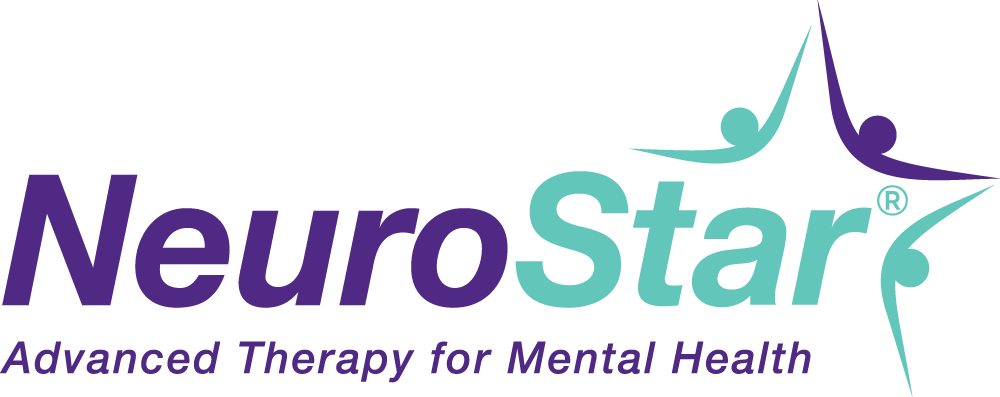NeuroStar Advanced TMS Therapy in Arlington

When medication side effects start to outweigh the benefits, or therapy alone no longer has an impact, NeuroStar Advanced TMS therapy in Arlington offers an evidence-backed alternative for treating your mental health concerns. It uses focused magnetic pulses to stimulate your under-active brain regions, gradually restoring normal activity and easing your depressive symptoms.
At Bloom Health Centers, we were early adopters of NeuroStar’s next-generation platform because precision matters. Our certified transcranial magnetic stimulation (TMS) technicians follow a neuronavigation protocol that maps your unique brain anatomy, ensuring each session targets the appropriate areas with precise accuracy.

How NeuroStar Treatment Works
Unlike medication that travels through your bloodstream, NeuroStar TMS delivers magnetic pulses only to the prefrontal cortex area of your brain. Each NeuroStar TMS session in Arlington lasts about 19 minutes and you can drive home or return to work immediately after each session.
A standard depression treatment course spans five daily sessions a week for seven weeks (or six weeks for OCD). Stimulation is localized, so there is no weight gain, sexual dysfunction, or memory impairment. You may feel a tapping sensation during treatment and a mild headache afterward, but these effects usually fade after a few sessions.
If you are taking medication, you can continue it throughout NeuroStar TMS treatment. This reduces the need for abrupt medication changes that might destabilize your mood.
Personalized Mapping With Real-Time Feedback
Before your Arlington NeuroStar TMS treatment begins, our team performs a motor-threshold test to calibrate intensity just high enough to activate your neurons. This individualized dosing sets NeuroStar apart from older TMS systems that relied on one-size-fits-all assumptions. During each appointment, contact sensing can verify the TMS coil position hundreds of times per second, pausing automatically if you move out of range.
We track your mood scores with tests such as PHQ-9 and GAD-7, so you can visualize your improvements in real time. At Bloom Health Centers, our clinicians encourage you to set weekly microgoals—such as getting out of bed earlier or resuming a favorite hobby—so your progress feels tangible between formal assessments.

What To Expect Day-to-Day During Your TMS Course
We ask you to arrive at least five minutes before your session start time. Check-in is fast, as no sedation or vitals are required. The NeuroStar TMS coil is positioned using landmarks stored in your chart, and stimulation begins. During NeuroStar TMS therapy sessions, many Arlington patients read, meditate, or catch up on podcasts—these moments often become a welcome mental break from daily life.
After your NeuroStar TMS treatment session you can work or exercise as usual. You will regularly meet with us to review your progress, adjust the TMS intensity, and get answers to any questions you may have.
Most commercial insurers and many Medicaid plans approve NeuroStar TMS treatment after two antidepressant trials have failed. Our billing specialists at our Arlington location can help you obtain preauthorization for NeuroStar TMS treatment, with approvals often arriving within a week.
Long-Term Outcomes of TMS Therapy
Large-scale real-world data underscores why our Arlington clinicians turn to the NeuroStar TMS therapy system. In the NeuroStar Outcomes Registry of more than 5,000 adults with major depressive disorder, 69 percent of patients reported a clinically significant response and 36 percent reached full remission on the self-rated PHQ-9 after the initial treatment course (Sackeim HA, et al. (2020). J Affective Disorders, 277(12):65-74.)
Durability also looks promising. In a naturalistic, multisite follow-up study, 62.5 percent of responders maintained their gains for the entire 12-month observation period when they continued standard medications and could return for booster TMS sessions as needed (Dunner DL, et al. (2014). J Clin Psychiatry, 75(12):1394-1401).
Contact US in Arlington Today To Start Your Journey With NeuroStar Advanced TMS Therapy
Your brain deserves a targeted solution when other treatment options have failed to provide relief from your symptoms of major depressive disorder, anxious depression, or obsessive-compulsive disorder. Many people will have insurance coverage, and we can determine if you are a candidate for this treatment. Call Bloom Health Centers or book online to schedule an appointment and find out whether NeuroStar Advanced TMS therapy in Arlington can help you reclaim your life.

TMS Patient Journey at Bloom
New to TMS? You are not alone.
Find out more about the journey to a life without depression through TMS Therapy at Bloom.
TMS Offered At:
Virginia
801 N Quincy St, #601
Arlington, VA 22203
158 Front Royal Pike, #206
Winchester VA 22602
Bloom Tips and Tools
Bloom Services:
Learn more about our comprehensive range of mental health services and schedule an appointment today!
Bloom Blog:
Helpful insights and information for your mental health journey.
Bloom In The News:
Press releases, announcements, and mentions in other media sources.
have questions?
We’re here to answer them. Request an appointment through our online form.
NeuroStar Indication Statement
Adult Indications for Use
The NeuroStar Advanced Therapy System is indicated for the treatment of depressive episodes and for decreasing anxiety symptoms for those who may exhibit comorbid anxiety symptoms in adult patients suffering from Major Depressive Disorder (MDD) and who failed to achieve satisfactory improvement from previous antidepressant medication treatment in the current episode.
The NeuroStar Advanced Therapy System is intended to be used as an adjunct for the treatment of adult patients suffering from Obsessive Compulsive Disorder (OCD).
Adolescent Indications for Use
NeuroStar Advanced Therapy is indicated as an adjunct for the treatment of Major Depressive Disorder (MDD) in adolescent patients (15-21).
Important Safety Information
NeuroStar Advanced Therapy is only available by prescription. A doctor can help decide if NeuroStar Advanced Therapy is right for you. Patients’ results may vary.
The most common side effect is pain or discomfort at or near the treatment site. These events are transient; they occur during the TMS treatment course and do not occur for most patients after the first week of treatment. There is a rare risk of seizure associated with the use of TMS therapy (<0.1% per patient).
Visit neurostar.com for full safety and prescribing information.
